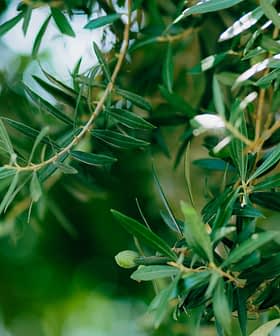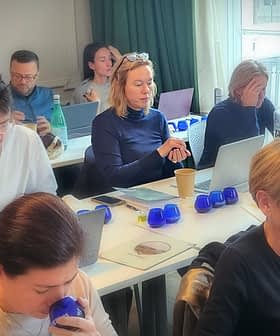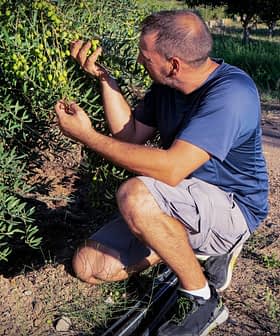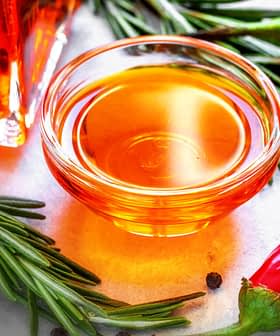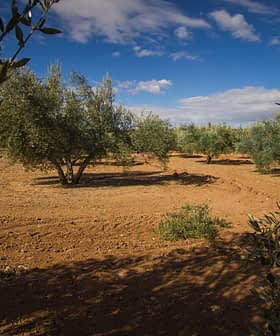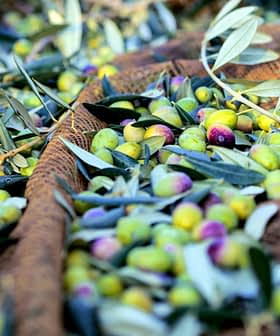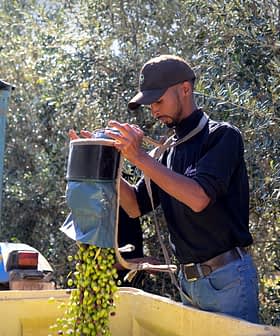Olive Oil Production Comes to French Capital

Neighbors in Malakoff, a suburb of Paris, united to produce olive oil for the first time in the region, harvesting 550 kilograms of olives from 120 trees across the neighborhood. The initiative, led by Born to be Olive founder Vincent Chévrier, is part of a larger urban agriculture movement in Paris to reduce the carbon footprint of food production and transportation, with support from the Parisculteurs program.
A group of neighbors in the southern Parisian suburb of Malakoff joined together late last year to produce olive oil for the first time in the capital region of Île-de-France.
Born to be Olive founder Vincent Chévrier told Radio France Internationale (RFI) that the group had harvested 550 kilograms of olives from trees spread across the neighborhood.
Chévrier was inspired to unite his neighbors after realizing he could not harvest enough fruit to produce olive oil from his single olive tree.
See Also:Meet the Man Trying to Transform the Olive Sector in France“A lot of people have an olive tree in their garden. Every year, they see the olives that fall and do nothing since we don’t have a mill and can’t process them in Paris,” Chévrier said.
After going around the neighborhood, he identified 120 olive trees in a two-kilometer area growing in private gardens and local parks.
He then set up a Facebook page to invite olive tree owners to join his initiative. A group launched a crowdfunding effort to buy harvesting and milling equipment, including an electric rake, nets, an olive grinder and a press.
During the inaugural harvest, residents looked on with curiosity and excitement.
“Vincent rang our doorbell after spotting the olive tree in our garden,” a resident identified as Geraldine told RFI as Chévrier harvested her tree using the recently purchased electric rake. ”I’m starting from scratch; I don’t know anything, but it is great fun to try.”
“It’s the first time we’ve been so organized thanks to Vincent, and we’re also learning to look after the tree,” she added. “It’s all a bit magical to think you are going to make olive oil like this.”
Once all the olives were harvested, which took about a month, the group crushed and pressed the fruit using traditional equipment and methods.
Chévrier encouraged residents who harvested early to store their olives in the freezer until the whole neighborhood was ready to mill.
While the final product may not qualify as extra virgin olive oil, neighbors insisted it is more about the experience than the result.
“People from everywhere in town got together and decided to have this collective project,” another resident named JoAnna told RFI. “It creates links between people locally in a different way… since they are getting together to consume something they’ve made with their neighbors.”
Born to be Olive is part of a larger urban agriculture movement aiming to reduce the carbon footprint associated with food production and transportation.
Since 2016, urban agriculture in Paris has been gaining momentum, driven by initiatives such as the Parisculteurs program, which facilitates and accelerates the installation of agricultural projects within the city and the broader Île-de-France region.
The idea is to use rooftops, walls, parking lots and open spaces to create urban farms and gardens.
The Parisculteurs program has already established more than 70 projects, with just as many under development.
Paris now boasts nearly 36 hectares of agricultural land within city limits, making it a leader in urban agriculture.
The program also supports educational and awareness-raising activities and training opportunities for aspiring urban farmers.
The south of France, especially Provence, will undoubtedly remain the country’s most prolific olive-growing region, responsible for most of the 6,300 metric tons of olive oil expected to be produced in the 2024/25 crop year.
However, Chévrier sees no reason why Parisians should not continue to plant an olive tree or two and make olive oil.
“You can perfectly plant olive trees wherever you are in Paris and have very successful olive production,” he concluded.


